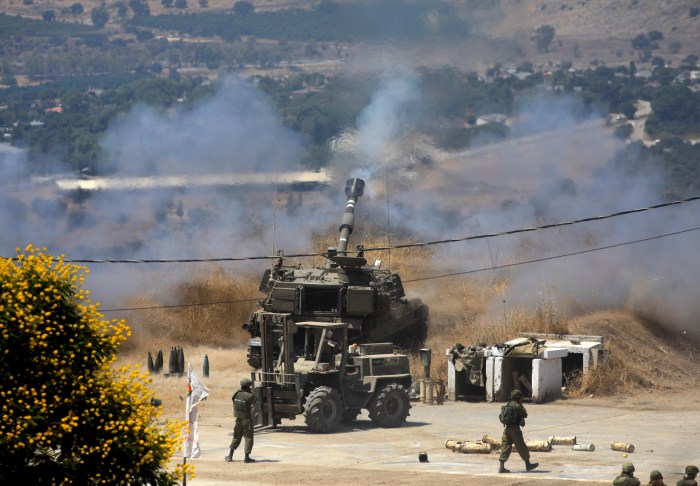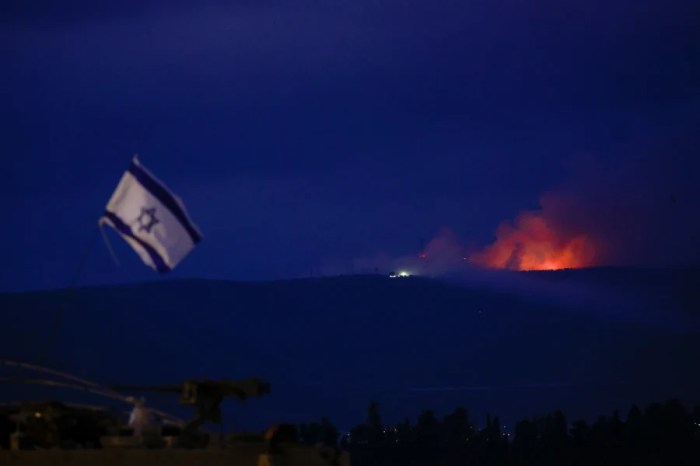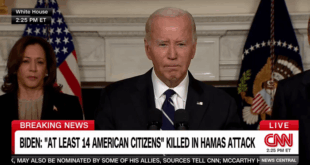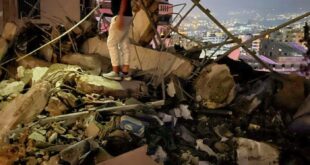Israel-Hamas war latest: Israel strikes Beirut after Hezbollah rockets land in northern Israel. The conflict between Israel and Hamas has once again erupted into a full-blown war, with a dangerous escalation involving Hezbollah and Lebanon. The latest development saw Israel launch airstrikes on Beirut, the capital of Lebanon, in retaliation for Hezbollah’s rocket attacks on northern Israel.
This escalation raises serious concerns about the potential for a wider regional conflict.
The situation is a complex one, with multiple factors driving the conflict. The ongoing Israeli-Palestinian conflict, the presence of Hezbollah in Lebanon, and the regional power dynamics all contribute to the current tensions. The recent escalation has raised the stakes significantly, prompting international calls for de-escalation and raising fears of a wider regional conflict.
Current Situation and Background
The current conflict between Israel and Hamas, which began on October 7, 2023, is a complex and rapidly evolving situation with a long and tumultuous history. It represents a significant escalation of violence in the region, with both sides launching attacks on each other’s territory.
The conflict is rooted in a long-standing dispute over land and resources, with both Israelis and Palestinians claiming the same territory as their own. This has led to decades of violence and instability, punctuated by periodic outbreaks of conflict.
Recent Developments and Updates
The most recent developments include a significant escalation of violence with both sides launching attacks on each other’s territory. On October 7, 2023, Hamas launched a surprise attack on Israel, killing hundreds of people and taking hostages. This was followed by a swift Israeli response, including airstrikes on Gaza and a ground invasion.
The conflict has since expanded beyond the Gaza Strip, with Hezbollah, a Lebanese Shiite militant group, firing rockets into northern Israel. This has prompted Israeli retaliation, including airstrikes on Beirut, Lebanon. The conflict has also seen the involvement of other regional actors, including Egypt and Jordan, who are trying to mediate a ceasefire.
Key Events Leading to the Current Escalation
The current escalation is the culmination of several factors, including:* The ongoing Israeli-Palestinian conflict:This long-standing dispute has been a source of tension and violence for decades.
The increasing frustration of Palestinians in Gaza
The Gaza Strip has been under Israeli blockade for over 15 years, leading to a humanitarian crisis.
The rise of Hamas
Hamas, which controls Gaza, has been increasingly assertive in its demands for Palestinian statehood.
The Israeli government’s policies
The current Israeli government, led by Benjamin Netanyahu, has been accused of pursuing policies that have further alienated Palestinians.
The involvement of regional powers
The conflict has also been influenced by the involvement of regional powers, such as Iran, which supports Hamas.
Casualties and Humanitarian Impact
The conflict has resulted in a significant number of casualties on both sides. The UN has estimated that over 1,000 people have been killed, including hundreds of civilians. The conflict has also caused widespread displacement and disruption of essential services, such as healthcare and education.
International Response
The international community has condemned the violence and called for a ceasefire. The UN Security Council has held several emergency meetings to discuss the situation, but has so far been unable to agree on a resolution.
Outlook
The current conflict is likely to continue for some time, with both sides showing no signs of backing down. The situation is highly volatile and could escalate further if regional powers become more involved. The conflict has a significant impact on the region and beyond, raising concerns about regional stability and the potential for wider conflict.
Israel’s Response

Israel’s response to the Hezbollah rocket attacks was swift and decisive. The Israeli Defense Forces (IDF) launched airstrikes on Beirut, targeting what they claimed were Hezbollah facilities. These strikes came after Hezbollah fired rockets into northern Israel, marking a significant escalation in the ongoing conflict.
Justification for the Strikes, Israel-Hamas war latest: Israel strikes Beirut after Hezbollah rockets land in northern Israel
Israel justified its strikes on Beirut by claiming that the Hezbollah facilities were used to launch rockets into Israel. The IDF stated that the strikes were a necessary measure to deter further attacks and protect Israeli civilians. However, Lebanon’s government condemned the strikes, calling them a violation of its sovereignty.
Potential Consequences for Lebanon
The Israeli strikes on Beirut have the potential to significantly destabilize Lebanon. The strikes could lead to further escalation of the conflict, potentially drawing Lebanon into a wider war. Additionally, the strikes could damage Lebanon’s already fragile economy and infrastructure.
Impact on the Regional Landscape
Israel’s military actions in Lebanon have the potential to have a significant impact on the broader regional landscape. The strikes could increase tensions between Israel and its neighbors, particularly Iran, which is a major supporter of Hezbollah. Furthermore, the strikes could lead to a renewed focus on the Israeli-Palestinian conflict, potentially reigniting violence in the West Bank and Gaza Strip.
Hezbollah’s Involvement
Hezbollah, the Lebanese Shia militant group, has been a key player in the conflict between Israel and Hamas, significantly impacting the trajectory of the war. Their involvement has escalated the conflict, raising the stakes and posing significant challenges for both sides.
Hezbollah’s Role and Motivations
Hezbollah’s primary motivation for involvement in the conflict stems from its long-standing rivalry with Israel and its commitment to supporting the Palestinian cause. Hezbollah views itself as a resistance movement against Israeli occupation and seeks to liberate all of Palestine, including territories occupied in 1948.
The group has a strong presence in southern Lebanon, bordering Israel, and considers itself a protector of Lebanese sovereignty against Israeli aggression.Hezbollah’s involvement in the current conflict has been multifaceted:
- Rocket Attacks:Hezbollah has launched numerous rockets into northern Israel, targeting civilian areas and military installations. These attacks have caused significant damage and casualties, forcing Israeli civilians to seek shelter and disrupting daily life.
- Support for Hamas:Hezbollah has provided Hamas with military and logistical support, including weapons and training. This support has been crucial in bolstering Hamas’s capabilities and prolonging the conflict.
- Political Pressure:Hezbollah has used its political influence in Lebanon to pressure the Lebanese government to support Hamas and oppose Israel’s actions. This has contributed to a tense atmosphere in Lebanon and increased the risk of regional instability.
Significance of Hezbollah’s Rocket Attacks
Hezbollah’s rocket attacks on northern Israel have had a significant impact on the conflict, escalating tensions and raising the stakes. These attacks have:
- Forced Israel to Respond:The attacks have forced Israel to respond with airstrikes and other military actions, expanding the scope of the conflict and potentially leading to further escalation.
- Threatened Israeli Security:Hezbollah’s rocket attacks have disrupted life in northern Israel, forcing residents to seek shelter and disrupting daily life. This has created a sense of insecurity and fear among the Israeli population.
- Increased International Pressure:The attacks have attracted international condemnation and raised concerns about regional stability. This pressure has forced Israel to exercise caution in its military response.
Implications of Hezbollah’s Involvement
Hezbollah’s involvement in the conflict has significant implications for the future of the region:
- Increased Risk of Regional War:Hezbollah’s involvement has increased the risk of a wider regional war, potentially involving other countries in the Middle East. The escalation of the conflict could trigger a chain reaction, drawing in other actors and expanding the scope of the fighting.
- Strengthened Iranian Influence:Hezbollah’s involvement has strengthened Iran’s influence in the region. As a key supporter of Hezbollah, Iran has gained leverage over the conflict and the potential to shape its outcome.
- Obstacles to Peace:Hezbollah’s commitment to the destruction of Israel and its support for Hamas have created significant obstacles to peace negotiations. The group’s involvement has made it more difficult to achieve a lasting ceasefire and a peaceful resolution to the conflict.
International Reactions
The escalation of violence between Israel and Hamas has drawn widespread international condemnation and calls for de-escalation. Many countries have expressed concern about the rising civilian casualties and the potential for a wider regional conflict.
Diplomatic Efforts
The international community is actively seeking to de-escalate the situation and prevent further violence. Several countries, including the United States, Egypt, and the United Nations, have engaged in diplomatic efforts to broker a ceasefire between Israel and Hamas.
- The United States has been in close contact with both Israel and Hamas, urging them to de-escalate the situation and return to negotiations. The US has also been working with regional partners to facilitate a ceasefire.
- Egypt has historically played a significant role in mediating between Israel and Hamas, and has been actively involved in efforts to reach a ceasefire agreement. Egypt’s proximity to the conflict and its strong ties with both sides make it a key player in de-escalation efforts.
- The United Nations Security Council has held several meetings to discuss the situation, and has issued statements condemning the violence and calling for a ceasefire. The UN has also deployed peacekeepers to the region to monitor the situation and provide humanitarian assistance.
Challenges and Opportunities for International Mediation
International mediation efforts face several challenges, including:
- The deep mistrust between Israel and Hamas, which has been exacerbated by years of conflict.
- The complexities of the Israeli-Palestinian conflict, which involve multiple actors and competing interests.
- The potential for external actors to undermine mediation efforts by supporting one side or the other.
Despite these challenges, international mediation offers several opportunities:
- It can help to prevent the conflict from escalating further.
- It can create space for dialogue and negotiation between the parties.
- It can help to build confidence and trust between the parties.
Civilian Impact: Israel-Hamas War Latest: Israel Strikes Beirut After Hezbollah Rockets Land In Northern Israel
The Israel-Hamas conflict has had a devastating impact on civilians in both Israel and Gaza. The conflict has resulted in widespread displacement, injuries, and deaths, and has also had a severe impact on the economy and infrastructure of both territories.
Humanitarian Crisis in Gaza
The humanitarian crisis in Gaza is particularly acute. The conflict has resulted in the deaths of hundreds of civilians, including many children. The Israeli military has carried out airstrikes on residential areas, hospitals, and schools, causing widespread destruction and displacement.
The conflict has also disrupted the supply of essential goods and services, leading to shortages of food, water, and medicine.
“The situation in Gaza is catastrophic. The people are living in fear and despair. They have no food, no water, and no electricity. They are trapped in their homes and cannot escape the violence.”
UN spokesperson
Challenges and Efforts to Provide Aid
The provision of humanitarian aid to Gaza has been hampered by the ongoing conflict. The Israeli government has imposed a blockade on Gaza, restricting the flow of goods and people into and out of the territory. This has made it difficult for aid organizations to reach those in need.
- The United Nations Relief and Works Agency for Palestine Refugees in the Near East (UNRWA) is the primary provider of humanitarian assistance to Palestinian refugees in Gaza. However, the agency has faced significant challenges in providing aid due to the ongoing conflict and the Israeli blockade.
- Other international organizations, such as the International Committee of the Red Cross (ICRC) and Doctors Without Borders (MSF), have also been working to provide humanitarian assistance to Gaza. However, their efforts have been hampered by the conflict and the Israeli blockade.
Impact on Israeli Civilians
The conflict has also had a significant impact on Israeli civilians. The Israeli military has deployed Iron Dome missile defense systems to intercept rockets fired from Gaza. However, some rockets have managed to penetrate the defense system, causing damage and injuries.
The conflict has also led to widespread anxiety and fear among Israeli civilians.
- The Israeli government has implemented a series of security measures, including the closure of schools and public spaces, in an effort to protect civilians from rocket attacks. These measures have disrupted daily life and caused significant economic damage.
- The conflict has also had a psychological impact on Israeli civilians. Many people have reported experiencing anxiety, fear, and post-traumatic stress disorder (PTSD).
Future Outlook
Predicting the future of the Israel-Hamas conflict is a complex task, fraught with uncertainty. The conflict has a long and bloody history, and the current escalation is just the latest chapter. However, several factors can shed light on the potential trajectory of the conflict and its implications for the region.
Key Factors Influencing the Conflict
Several key factors could influence the course of the conflict:
- The Role of International Actors:The involvement of regional and international actors, such as Egypt, the United States, and the United Nations, can play a significant role in shaping the conflict’s trajectory. Their diplomatic efforts, mediation attempts, and potential intervention could influence the conflict’s escalation or de-escalation.
- The Internal Dynamics of Hamas and Israel:The internal dynamics of Hamas and Israel, including their leadership, political agendas, and public opinion, can influence their decision-making during the conflict. For example, public pressure for a decisive victory or a desire to avoid further escalation can impact the actions of both sides.
- The Humanitarian Situation:The humanitarian situation in Gaza, including the number of civilian casualties and the availability of essential resources, can influence the conflict’s course. International pressure to alleviate the humanitarian crisis could push for a ceasefire or other measures to protect civilians.
- The Regional Context:The broader regional context, including the relationship between Iran and Israel, the stability of Lebanon, and the dynamics of the Arab world, can impact the conflict. For example, increased regional tensions could escalate the conflict or provide opportunities for external actors to intervene.
Possible Scenarios for the Future of the Conflict
Several possible scenarios could unfold in the future:
- A Negotiated Ceasefire:A negotiated ceasefire, brokered by international actors, is the most likely scenario. This scenario would involve a temporary halt to hostilities, followed by negotiations to address the underlying issues of the conflict. However, the success of such a ceasefire depends on the willingness of both sides to compromise and the ability of international actors to facilitate a lasting agreement.
Finish your research with information from Dylan O’Brien Recalls “Really Bad” Audition for ‘Frozen 2’.
- A Long-Term Truce:A long-term truce could be achieved, with both sides agreeing to a period of calm, possibly with some concessions on both sides. This scenario would offer a respite from violence but would not necessarily address the root causes of the conflict.
The stability of such a truce would depend on the commitment of both sides and the ability of international actors to maintain a monitoring presence.
- Escalation and Wider Conflict:The conflict could escalate into a wider regional conflict, with the involvement of other regional actors, such as Iran, Lebanon, or Syria. This scenario would be highly destabilizing for the region and could have far-reaching consequences. The likelihood of this scenario depends on the actions of regional actors and the ability of international actors to prevent further escalation.
Summary

The latest developments in the Israel-Hamas war, with Israel’s strikes on Beirut and Hezbollah’s involvement, have brought the region to a dangerous crossroads. The conflict has a significant impact on civilians on both sides, and the potential for further escalation remains high.
The international community faces a challenging task in navigating this complex situation, with the need to balance competing interests and prevent the conflict from spiraling out of control. The future of the conflict remains uncertain, but one thing is clear: the consequences of this escalation will be felt far beyond the immediate battleground.
Top FAQs
What are the main reasons for the recent escalation in the Israel-Hamas war?
The recent escalation is attributed to a complex mix of factors, including the ongoing Israeli-Palestinian conflict, Hezbollah’s presence in Lebanon, and regional power dynamics. The specific triggers for the latest round of violence include Hamas’s rocket attacks on Israel and Hezbollah’s retaliatory attacks on northern Israel.
What are the potential consequences of Israel’s strikes on Beirut?
The strikes on Beirut could potentially lead to further escalation, with Hezbollah and other Lebanese factions retaliating. The strikes also risk further destabilizing Lebanon, which is already facing significant economic and political challenges.
What is the role of the international community in the conflict?
The international community is playing a crucial role in attempting to de-escalate the situation and facilitate a ceasefire. Key players are engaged in diplomatic efforts to prevent further escalation and promote a peaceful resolution to the conflict.
 CentralPoint Latest News
CentralPoint Latest News




